I and Thou and Charles Darwin
In it, the article's author tells of a recent two-week lecture series at Britain's Cambridge University, under the aegis of the Templeton-Cambridge Journalism Fellowship, which brought together 10 journalists and several speakers from the world of science. The lecturers "included four agnostics, a Jew, a deist, and 11 Christians." Many of them "saw no unbridgeable chasm between science and their faith."
Biologist and Darwin defender Richard Dawkins, described as "an agnostic leaning toward atheism," was among the notable lecturers in the series. So was philosopher Nancey Murphy, "a materialist who also adheres to nonscientific ideas, such as the resurrection of Christ." Other luminaries who offered various ways to bridge the science-religion gap included Cambridge biologist Simon Conway Morris and physicists John Barrow, John Polkinghorne, and Paul Davies.
"Murphy acknowledged," writes Horgan, "that at times the discussion between science and religion 'breaks down' because they involve 'incommensurable schemes' for understanding reality'." More on that in a minute.
Peter Lipton, a Cambridge philosopher, said he practices his faith, Judaism, even though he doesn't actually believe in a supernatural God:
"I stand in my synagogue and pray to God and have an intense relationship with God, and yet I don't believe in God" ... He [Lipton] compared his religious experience with that of someone who gets pleasure from a novel even though he knows it is not literally true. "Are you having your cake and eating it, too?" asked journalism fellow Shankar Vedantim of the Washington Post. "I'm certainly trying to," Lipton replied.
Maybe, one speculates, God is in the relationship between Lipton (or any one of us) and the Lord. Maybe our assumption that God exists first and foremost, and then we optionally establish a relationship with him or her as an objective reality, is what's confusing us here. Maybe God isn't anything like an object. Maybe Martin Buber was right about the fundamental necessity of having an I-Thou relationship with divinity, or none at all.
 Buber would probably have said — I'm interpreting his book I and Thou here — that religion isn't really supposed to be (in Murphy's phrase) a "scheme for understanding reality" at all. Maybe to "understand" something means to objectify that something, to treat it as an "It," a mere thing. The relationship is one of I-It, not one of I-Thou, and spiritually it has to be unsatisfactory and false.
Buber would probably have said — I'm interpreting his book I and Thou here — that religion isn't really supposed to be (in Murphy's phrase) a "scheme for understanding reality" at all. Maybe to "understand" something means to objectify that something, to treat it as an "It," a mere thing. The relationship is one of I-It, not one of I-Thou, and spiritually it has to be unsatisfactory and false.It's hard for us to grasp what Buber means about I-Thou relationships, just as it's hard to think about God as anything but an objective It (or He or She). Peter Lipton seems to have caught onto the trick though, which is why he can pray so easily to a Thou he doesn't "believe in."
Which brings me to "Say Anything," Jim Holt's critical essay in the Aug. 22, 2005, issue of The New Yorker. This one is not even about science at all, much less evolutionary science, but it's relevant nonetheless. It's about bullshit.
 Holt's takeoff point is a consideration of moral philosopher Harry G. Frankfurt's short paper, recently re-issued as a hot-selling book, called "On Bullshit." Frankfurt defines a bullshitter as, worse than a liar, one who is wholly indifferent to (in Holt's words) "the authority of truth." At least the liar, just like the truthteller, is "guided in what he says by his beliefs about the way things are." The bullshitter doesn't care.
Holt's takeoff point is a consideration of moral philosopher Harry G. Frankfurt's short paper, recently re-issued as a hot-selling book, called "On Bullshit." Frankfurt defines a bullshitter as, worse than a liar, one who is wholly indifferent to (in Holt's words) "the authority of truth." At least the liar, just like the truthteller, is "guided in what he says by his beliefs about the way things are." The bullshitter doesn't care.Holt discusses a number of reasons why Frankfurt might be wrong in drawing such a clean line between the bullshitter and the liar. I find that part to be of moderate interest to me, at best, but then he brings up various currents in postmodern thought which "seem to undermine the commonsense notion of truth as agreement with reality."
The "Continental poststructuralists like Bruno Latour, Jean Baudrilliard, and the late Jacques Derrida," he writes, seem to be echoed by their otherwise natural antagonists in matters philosophical, "the 'brand-name' Anglophone philosophers of the past fifty years — Wittgenstein, W. V. Quine, Thomas Kuhn, Donald Davidson, Richard Rorty": they're all uniformly "anti-truth."
By "anti-truth," Holt means that these guys, whatever their manifold philosophical differences, all "insist that each of us is trapped in his own point of view; we make up stories about the world and, in the exercise of power, try to impose them on others." That makes discovering the actual truth, characterized by a presumed "agreement with reality," a fundamental impossbility.
If there even is a reality beyond what we think we know, we simply each have our own window on it. The window determines what we see and what we don't see.
Which confirms Buber. Objectifying reality — trying to establish what the "truth" of it actually is — is indeed incommensurable (Nancey Murphy's aptly chosen word) with engaging in an I-Thou relationship, either with God or with any of our fellow creatures in this God-made world! Such a relationship goes by the more conventional name of love. Maybe if we could just see that God is love, we'd all stop arguing so much about evolution!






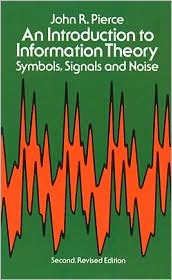

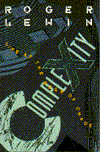
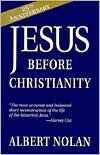
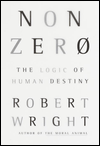

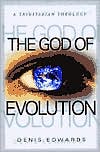

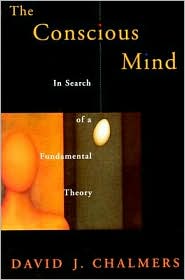
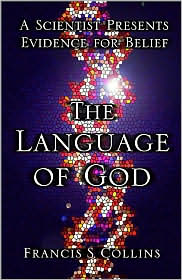


0 Comments:
Post a Comment
<< Home